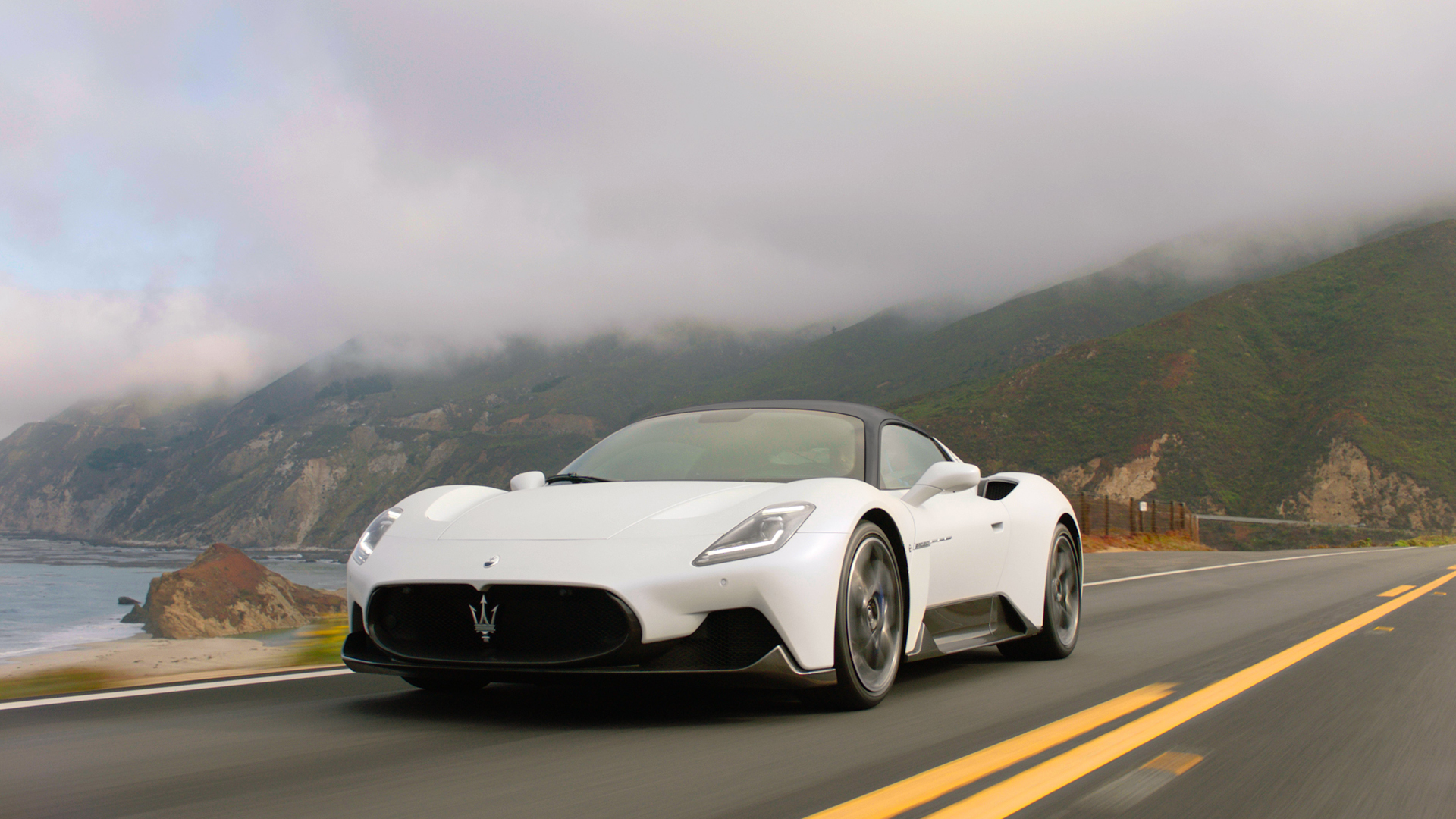

In case you have been living under a rock or in a different century, electric vehicles—using motors rather than combustion engines—sound pretty radically different from their gasoline-powered counterparts. Not everyone’s happy about it, to say the least, and the challenge of creating an immersive driving experience with a radically different-sounding propulsion system is one automakers continue to wrestle with.
Maserati is a brand acutely aware of how key sound is to the experience of their vehicles. No one thinks of the quiet, efficient hum of a Maserati. You think about a car you can hear at least a mile and a half off from the outside and, from the inside, should feel alive with the noise. After Ferrari exited the Fiat-Chrysler group (and before the whole thing became part of Stellantis) Maserati had to develop, with great effort, its own engine technology for the MC20. Now it’s debuting its fully electric powertrain in next year’s Granturismo and Cabria models—so how are they gonna sound like Maseratis?

Well, the good news—if you’re in the market for an electric supercar but don’t want to miss out on the full Mazza experience—is that the automaker apparently has “a solution” to the noise concern.
The Drive’s own Kyle Cheromcha interviewed Maserati’s CEO of Americas, William Peffer, about where the brand’s going as it restyles itself, promising luxury in the future as part of Stellantis’ all-electric offensive across its 14 brands. Despite Maserati’s long-held association with screaming Ferrari engines, that partnership’s come to a close and there’s a new world ahead, with Maserati saying that by 2024, every single model it makes will be available as a full EV version.
So it’s important to get the experience of building an EV that is nonetheless a Maserati and sounds like one, too, down early on. Peffer told us that when it comes to the sound of the vehicles, “Stay tuned on that. We have a solution.”
You might be cynical, given the fanfare other brands have given developing sounds for their EVs that haven’t necessarily paid off. Porsche put a lot of work into developing an intuitive, natural sound for the Taycan; it tried to eliminate the nastier noises a motor makes and amplify the ones that tell you what it’s doing. But no one really rhapsodizes about the sound of the Taycan over its power and range.
Peffer acknowledged that it was something no one had managed to quite pull off yet. “We’ve watched other manufacturers come out with EVs and that’s the one area that, for us, a brand where [the sound] is so important, you have to be able to hold onto that DNA.”
Maserati did tease its motor sound early this year. Honestly, it sounded pretty much like any reasonably high-powered MGU under strain—and extremely reminiscent of Formula E onboards—but things may well have changed since then.

Despite being pressed about exactly what that solution is, Peffer wouldn’t be drawn on it, saying “You can draw conclusions from there.” So it’s not clear if the noise will be a special electrical sound. But it’s interesting to know that Maserati thinks it is a problem it has addressed successfully where other brands haven’t.
Guess we’ll just have to wait and see what Maserati brings to the party.
Got a story tip? Mail me on hazel@thedrive.com